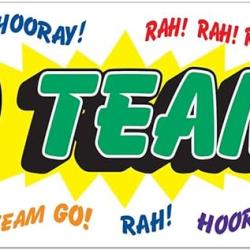Last week, Tony Jones offered his predictions for Christianity in 2013.
His lighthearted list includes “sea changes in the personnel of evangelicalism”:
Evangelicals are looking for new leading voices. As the founding generation of the evangelical insurgency passes into dementia-induced incoherence, to whom will they turn? …
Tony says “it seems doubtful that bloggers will lead the way,” but he also mentions that someone like Rachel Held Evans could be among the new voices that emerge as evangelical leaders.
I think he may be a little late with that prediction, because I think Evans already is an important leader among evangelicals. That fact has gone under the radar somewhat because she doesn’t fit the model of what American evangelicalism expects its “leaders” to look like. Or, at least, she’s leading in a way that many of the established “leaders” in evangelicalism don’t recognize as “leadership.”
She’s not the president, founder and CEO of any institution. She doesn’t seem to seek or to wield much in the way of power. And yet it seems to me that she’s influenced as many people as deeply as any of the magazine-cover-profile type president/founder/CEO/senior pastor celebrities of the evangelical world.
My “Bonfire” list of Christian women bloggers is up over 1,100 now. Evans is just one name in that list, yet her influence, encouragement and generosity is reflected in scores of other voices represented there. Her influence reminds me of that famous quote from (maybe) Brian Eno, about the Velvet Underground: “The first Velvet Underground album only sold 10,000 copies, but everyone who bought it formed a band.”
This hasn’t gotten the full attention of the evangelical powers that be partly because those voices are women’s voices, and partly because Evans doesn’t seem interested in becoming one of the powers that be herself. She’s leading quietly, without trying to acquire power and fame. And since the powers that be regard the acquisition of power and fame as the definition of leadership, I think they have a hard time recognizing what she’s been doing as “leadership” at all.
I’m guessing that when Rachel reads this, it will make her immensely uncomfortable. She’ll squirm a bit at being singled out and she’ll want to insist that it’s wrong to praise her for such alleged leadership without also praising many, many others — Kristen Howerton, Sarah Bessey, Addie Zierman, Krista Dalton … and many, many more. And she’d be right about that. Rachel Held Evans isn’t alone.
That’s really at the heart of the kind of “leadership” I think she represents. It’s not about amassing power for oneself, it’s about sharing it to empower others. It’s a walking-with rather than a standing-above kind of leadership. It’s a kind of power that people who seek power don’t even recognize as power.
But please don’t get me wrong. I’m not suggesting that Rachel Held Evans is the chosen one of her generation who will stand alone against the forces of darkness. I think she’s chosen something better than that. Something really … nifty.
I look at the effect that she and all those other women are having as they empower one another and I’m reminded of this:
And of this:
And that’s my prediction for the future leadership of evangelicalism. Everyone who could have the power will have the power; can stand up, will stand up.
Maybe 2013 is too soon, but eventually this will happen. Right now you’re asking yourself, “What makes this different?” But Tony is right — the old generation of leaders is dying out and the old model of leadership is dying with them. The days of competing fiefdoms and tribal gatekeepers are finally ending. It’s time to try something new.
So here’s the part where you make a choice: Are you ready to be strong?


















